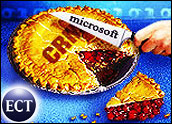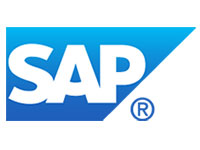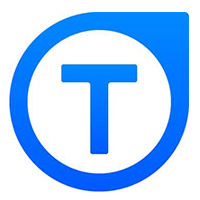
Originally positioned as a small company application, Microsoft Dynamics CRM is clearly gunning for the enterprise with its latest release, rolled out in December.
The company announced Tuesday that it has made additional inroads into that end of the market, citing customer wins including H&R Block, which has deployed 2,000 seats of Microsoft CRM and plans to deploy an additional 4,000 over the next five years; AGFirst Farm Credit Bank, an agricultural lender, which is deploying 1,500 seats; and Quiznos, which has implemented 500 seats.
Microsoft also announced that it has secured other multi-thousand seat deals with large enterprises worldwide in the pharmaceutical, public sector, food and beverage, and telecom industries.
“We are a seeing a higher reporting of larger deals,” Brad Wilson, general manager of Microsoft Dynamics CRM for Microsoft Business Solutions, told CRM Buyer.
“People give us a lot of credit for being strong among SMBs — but we are making a lot of traction with larger enterprises as well.”
The Platform Dominates
The latest enhancements in 3.0 are driving its push into the enterprise end of the market. The first versions of Microsoft’s CRM application that came to market — 1.0 and the subsequent point versions — were not considered robust enough to support enterprise needs. That changed with the rollout of Microsoft Dynamics CRM 3.0 in December.
The latest version offers deeper role-based functionality and better integration with Outlook and Sharepoint, Yankee Group analyst Sheryl Kingstone told CRM Buyer.
Ultimately, though, the changes in Microsoft CRM are less about core functionality than about better deployment of the Microsoft product platform. “This is not a feature and function race … [it is] about the embedded applications that Microsoft can offer,” she explained.
“We are not surprised to see Microsoft looking to target enterprise customers given the scalability of the platform as compared to earlier releases of the product,” Benjamin Holtz, CEO of Green Beacon Solutions, told CRM Buyer.
The customization capabilities in Version 3.0 allow partners and systems integrators to build vertical or industry specific functionality — something the current version still lacks, he noted.
“Microsoft is approaching CRM from a different perspective,” Wilson said. “We are focusing more on productivity and less on trying to create more buttons to push.”
Beyond 3.0
New capabilities that will be included in the next major release of Microsoft CRM — code named Titan, which is expected to come out during the first half of 2007 — are examples of this approach.
Titan will leverage the new features offered in the latest version of Office, for instance, thus facilitating integration. It will also offer multi-tenancy capabilities, making it more cost-effective for partners to provide Microsoft CRM on a hosted basis.
Perhaps most importantly for the enterprise market, Titan will allow users to run any of the 22 languages in which Microsoft CRM is currently available off one server. Right now, each language requires its own server.























































